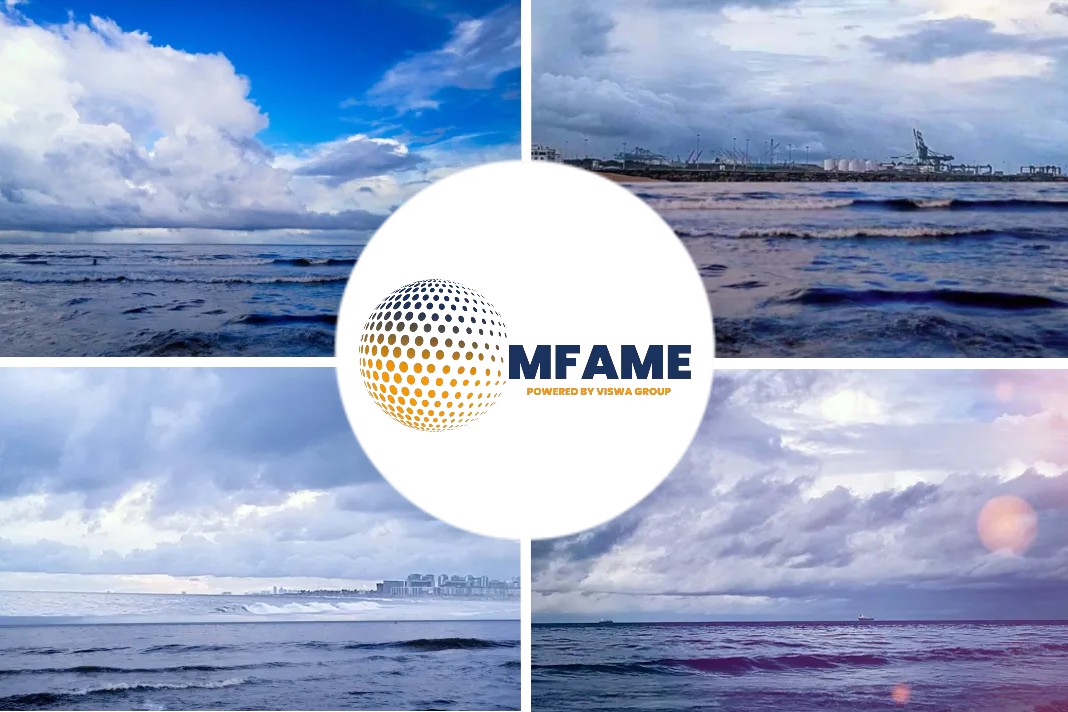- IOC had called for bids earlier this year to hire a ten-year old oil super tanker for a firm period of five years with two extensions of one year each.
- A five-year time charter for a modern VLCC currently fetches $26,250 a day for its owner, while a three-year deal earns $30,000 a day.
- Ships can meet the IMO requirements by using low-sulphur compliant fuel oil.
Indian Oil Corporation Ltd (IOC) has hired a foreign flagged very large crude carrier (VLCC) at a day rate of $31,950 for seven years, reports Hindu Business line.
Contracts not at play
This has upset the calculations of the Government to use such long-term contracts to help India expand its shipping capacity to haul more oil cargoes for strategic reasons.
Earlier this year, IOC had called for bids to hire a ten-year old oil super tanker for a firm period of five years with two extensions of one year each. This was the first of such experiments brokered by the shipping and oil ministries.
The move followed intense lobbying by the local shipping groups which said that long-term contracts would facilitate funding at better rates to buy ships.
Contract for lowest quotation
Local fleet owners participating in the tender were given a so-called ‘right of first refusal’ to match the rate and take the contract if the lowest quotation was offered by a foreign owner.
IMO Compliant scrubbers
The VLCC had to be fit with scrubbers when it begins the seven-year contract from January 2020, to comply with a global rule framed by the International Maritime Organization (IMO).
The country imported 84% of its crude requirements in the last fiscal year and more than 90% of that were hauled on foreign flagged vessels.
This entailed a foreign exchange outflow of freight worth billions of dollars.
Bright Pioneer
Panama-flagged ‘Bright Pioneer’, a VLCC owned by Japanese ship owner Nissen Kaiun Co Ltd, had quoted the lowest day rate of $31,950 on the tender.
Indian ship owners including the state-run Shipping Corporation of India Ltd (SCI) that had participated in the tender, however, declined to avail the right of first refusal and match the rate offered by ‘Bright Pioneer’, which they said were “too low”.
Clarksons review
But, this argument lacked merit going by the weekly market rates published by Clarksons – the world’s biggest shipbroker.
A five-year time charter for a modern VLCC currently fetches $26,250 a day for its owner, while a three-year deal earns $30,000 a day. The day rate for a one-year time charter is $34,000, according to Clarksons.
Shipping Corporation of India
The Shipping Corporation of India had let its VLCC named ‘Desh Ujaala’ to IOC for six months beginning May/June.
They had done so with two optional extensions of three months each at a day rate of about $22,100 when the market rate is $34,000 a day.
Global United Shipping
The only Indian link to the seven-year deal is that ‘Bright Pioneer’ is commercially operated by Singapore-based Global United Shipping Company founded by Captain Rajesh Unni. Global United Shipping is backed by Japanese trading group Mitsui & Co.
“IOC signed off on the deal to hire ‘Bright Pioneer’ a few days ago,” a person briefed on the contract said. Global United Shipping confirmed the development.
Desh Vibhor
Of the seven VLCCs run by Indian ship owners, only one – Desh Vibhor – run by SCI is less than 10 years old but is deployed on another contract.
As a result, local owners had to first buy a ten-year old VLCC from the second-hand market and fit it with scrubbers to qualify.
Scrubber installation
“Globally, most yards are fully booked for installing scrubbers that were ordered more than a year ago. Thus, ordering a scrubber and getting a yard slot to fit them by January next year has become impossible,” an official said.
Low Sulphur fuel
From January 1, 2020, ships must use fuel oil on board with a sulphur content of not more than 0.5% mass/mass (m/m), a steep cut from the current global sulphur cap of 3.5 per cent m/m.
Ships can meet the requirement by using low-sulphur compliant fuel oil or continue to use high sulphur fuel oil by fitting exhaust gas cleaning systems or scrubbers.
Did you subscribe to our daily newsletter?
It’s Free! Click here to Subscribe!
Source: Hindu Business Line























